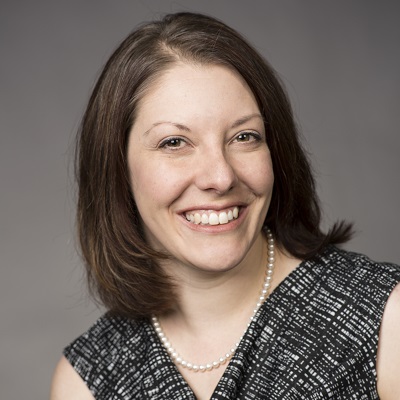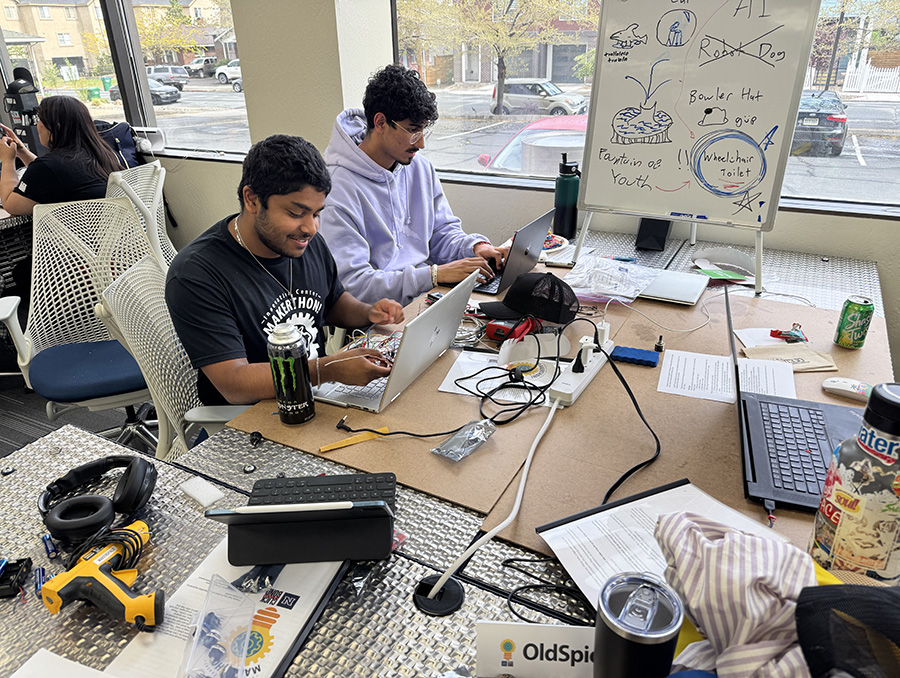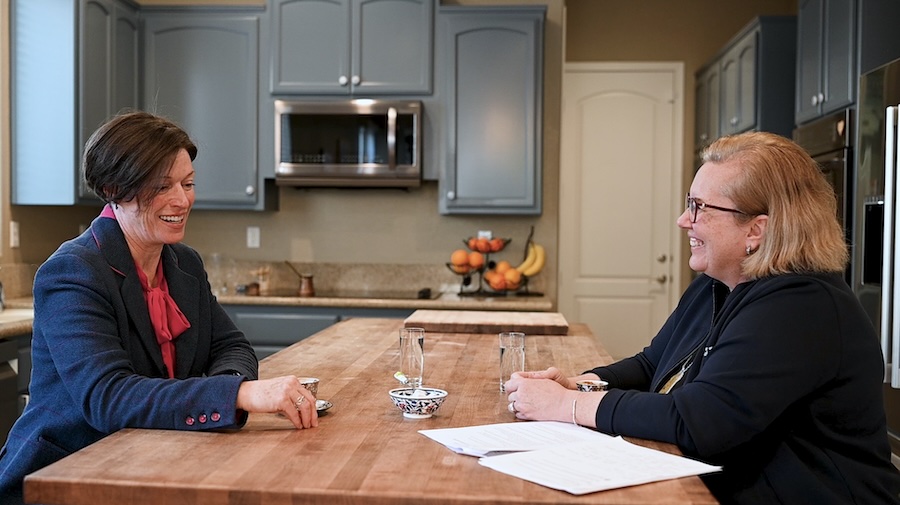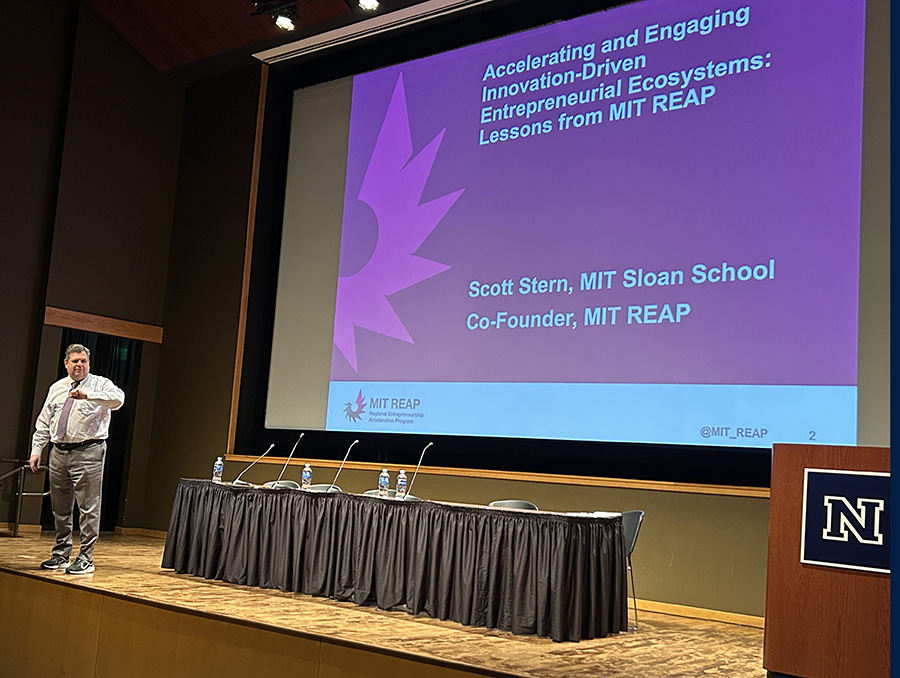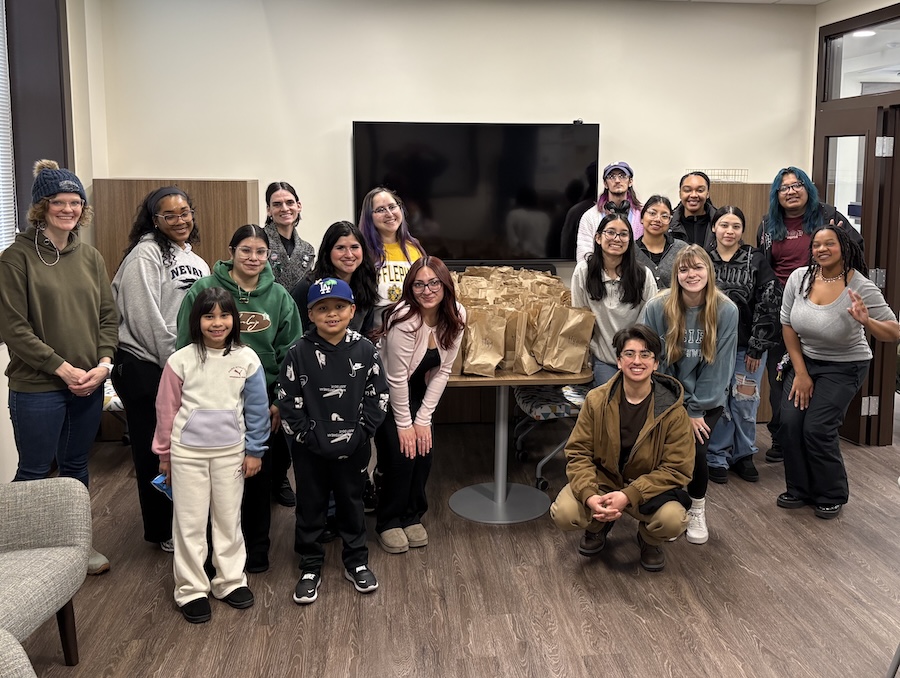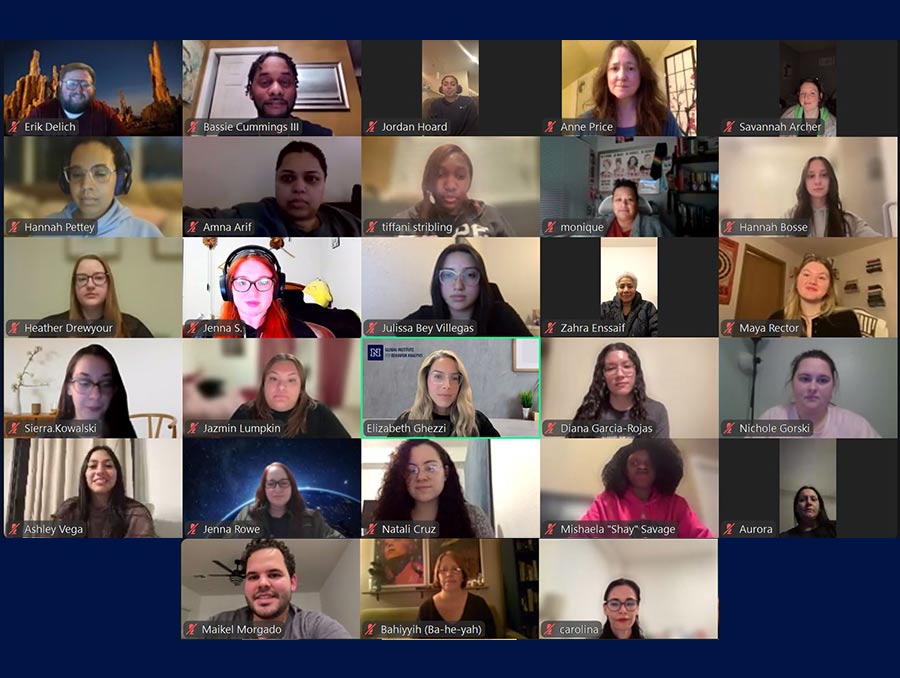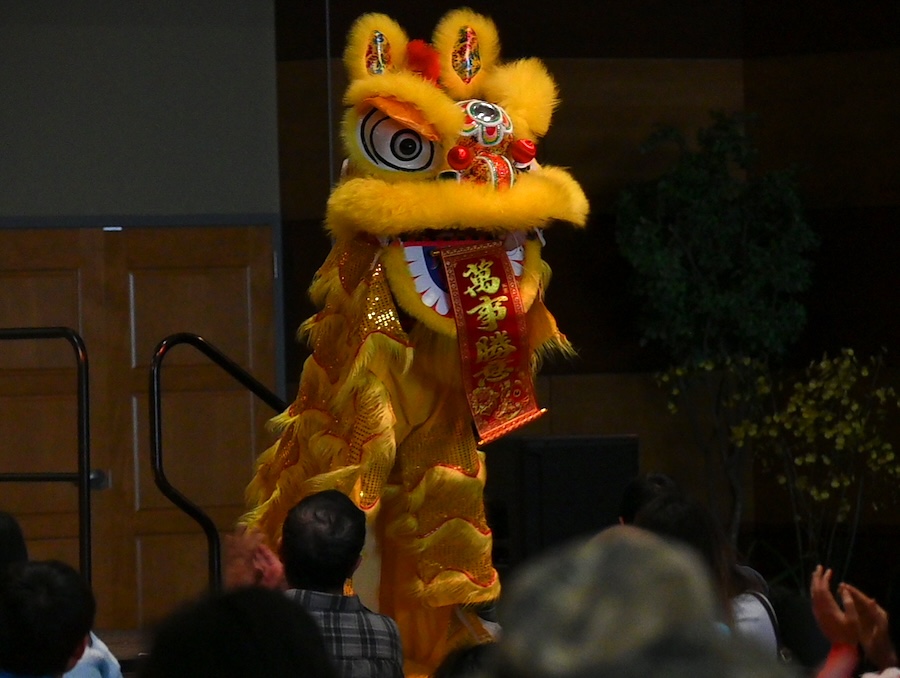As we start a new semester, this will be a year of complex decisions
Faculty Senate Chair Amy Pason knows there will be challenges, but remains optimistic about the coming year
Colleagues,
As we are about to embark on what will certainly be a unique Fall semester, I want to send a welcome on behalf of the Faculty Senate to new faculty joining us, a welcome back to faculty returning to campus again from our work from home Spring and Summer, and a distanced welcome to those faculty continuing to work remotely.
I’m a rhetorician who studies public documents and speeches, and so I know welcome letters should adhere to norms of the genre, include content as others have done before, all while including my own unique and original contributions. Given our current circumstances, writing a welcome fitting for this Fall is challenging. What is apt to frame and give meaning to our present situation? What can I offer to guide or help us interpret how we will continue to work together and fulfill our educational mission for the year? On the one hand, overused terms like “resilience” or “unprecedented” don’t seem helpful or fitting; on the other hand, the phrase from the Hunger Games: “May the odds be ever in your favor” also isn’t encouraging even as it might reflect gut reactions some of us have whenever we go out in public.
To address this welcome letter challenge, let me offer the lessons I emphasize with my facilitation students: when we deal with complex, uncertain, large-scale issues and problems, we always need to think of the diverse perspectives, individuals, and possible actions we can take. We have to weigh and consider the trade-offs that come with any decision, and think about how willing we are to accept those possible trade-offs. This year will be full of these types of complex decisions. For example, we know that for some students, having access to resources and in-class instruction is essential for their learning; the trade-off is that in-person teaching carries some risk. We know that for some campus operations, it is much easier and sometimes essential to be on campus; the trade-off is that we have to adapt to accomplishing as close to the same tasks for safety. As we all have been reading the updated campus plans and navigating our own working situations, we are called to think about these trade-offs, and are often never sure what the right or best answer is. I wish I could tell you that all the details have been sorted out and Fall will proceed without unexpected hitches, but the reality is that, as with any complex problem, there is no guaranteed certainty. We must continue to adapt, reconsider, and evolve as situations change.
Another lesson I emphasize to my facilitation students is that we must think about ourselves as interdependent with others. Different roles, perspectives, and positions all make up the workings of our institution, and any decision we make affects, changes, and impacts everyone in different ways. To carry out any decision, we are dependent on the ability of all the parts to make it work. If anything, our current situation makes more visible all the parts of our institution that depend on one another. Teaching cannot take place if not for the work of MarCom and admissions to keep students updated on our Fall plans. If not for the work of OIT in managing the infrastructure for remote and internet connected work platforms and the heavy lifting our Teaching and Learning Technologies colleagues did over summer to prepare us for online and hybrid modalities, we would not be able to offer courses. And individual instructors in the classroom and student advising and support are essential in keeping students engaged and on-track to completing their degrees. And perhaps more visible to us than before is the work of Facilities Services with items like HVAC filters and sanitizing stations all have taken on greater importance than before. We could trace out all the interconnected parts for any aspect of our educational mission: from athletics, to research, or community engagement. To be clear, we all will need and rely on each other more than ever before, and all the work on our campus is valuable and important in this mission.
As Senate Chair, I’ve had a crash course over summer in learning and interacting with all parts of our interdependent institutional systems. I’m proud and amazed of the work I see across campus in all our major units. Even with these challenges, I’m excited to work with you all this year along with our Senators and Faculty Senate Executive Board.
In preparing for our upcoming work together, I want to highlight some of what has been happening over summer as well as what the Senate plans for this Fall.
Fall Reopening Planning: Building from the Senate Resolution pertaining to return to campus, Faculty Senate Executive Board leaders worked with campus leadership over summer as part of the Issue Management Team, Recovery Working Group, and on specific aspects such as course modality planning, needed information for the website, and forms related to alternative work accommodations. We worked to represent faculty voices in these decisions during many on-going conversations in the process, and I encourage you to continue to review the Coronavirus website for updates.
Diversity, Equity, and Inclusion: This summer has also made visible the continued challenges equitable and just relationships and conditions for all in our community. We especially must continue to stand by and support our international and DACA students as we react to ever changing federal policy impacting these students. To this end, I hope that all major units take up the recommendation of our Faculty Diversity Committee (FDC) last year to create diversity and inclusion statements, as well as for teaching faculty to include similar statements on their syllabi. The FDC will continue to address our campus diversity, equity, and inclusion (DEI) commitments, exploring ways we can make these commitments more visible. We hope to build on and collaborate with the Diversity and Inclusion Task Force and DEI strategic plans being developed and implemented by all major units.
Campus Safety and Policing: The events of this summer also brought our attention to police and community relationships. The Faculty Senate Executive Board is collaborating with other campus and community stakeholders to revise the purpose and charges of the Police Advisory Board. At Chief Renwick’s initiative, we are looking at how the advisory board can better address campus concerns as well as some of the issues raised in the Black student leaders’ “Listen to Us” platform. The Senate is planning a campus conversation related to campus safety and the initiatives already taken by our Police Services to better serve our campus.
New NSHE and Campus Leadership: NSHE had a busy summer in hiring a new Chancellor, Dr. Melody Rose, as well as a new UNLV President, Dr. Keith Whitfield. We will also be seeing a change of leadership on our own campus.
Watch your email for announcements for faculty forums with the candidates for the University President on September 14th and 15th. The Board of Regents will appoint the new President on September 17th. I look forward to meeting with the candidates and working with all new NSHE leadership in our shared governance system.
Legislative Session and Budget Cuts: One uncertainty was decided over the summer, and that was the size of state budget reductions impacting NSHE. Much our institutional share of these cuts came in the form of hiring freezes and reduced operating budgets—so we will need to work together, working with less. During the special session, I was heartened to see the Chancellor, Presidents, and Faculty Senate Chairs working as a whole to find ways to meet these cuts while keeping all employed. The regular Legislative session will start in February, and we will have to do all we can to advocate for higher education.
On a related item, voters will decide on Ballot Question 1, related to removing the Board of Regents from the Constitution, giving more oversight of higher education (including academic freedom) to the Legislature. Ballot Question 1 does not include what specific changes could be made (if at all) to the shared governance structure of NSHE if passed, thus another variable of uncertainty that we will want to watch (make sure to vote!).
Senate and Senate Standing Committees: Our Senate committees are where much of the work of the Senate occurs, and I want to thank (in advance) the chairs and committee members who will navigate the challenge of Zoom meetings to address the many campus changes we will see this year. Our committees will address everything from budgets and benefits; monitoring the safety measures and changed campus protocols due to COVID; continued collaboration on campus Strategic Plans, Master Plans, and Research Strategic Plans; and support for faculty seeking promotion and tenure (just to name a few charges).
I aim to do all I can to represent the voice of all our faculty (academic and administrative) as your 2020-2021 Faculty Senate Chair. Help me in this endeavor by reaching out to your Faculty Senate representative(s) or email me with any questions you may have related to faculty welfare on campus. Reach out to me or your Senator(s) to share thoughts, concerns, or suggestions you may have. I hope to see some of you on campus (with masks on, of course!), or in our continued virtual events on Zoom. Regardless of the challenges, I do like our odds in this upcoming year.
Hope you all are staying safe and well,
Amy Pason
Faculty Senate Chair 2020-2021
Associate Professor of Communication Studies

